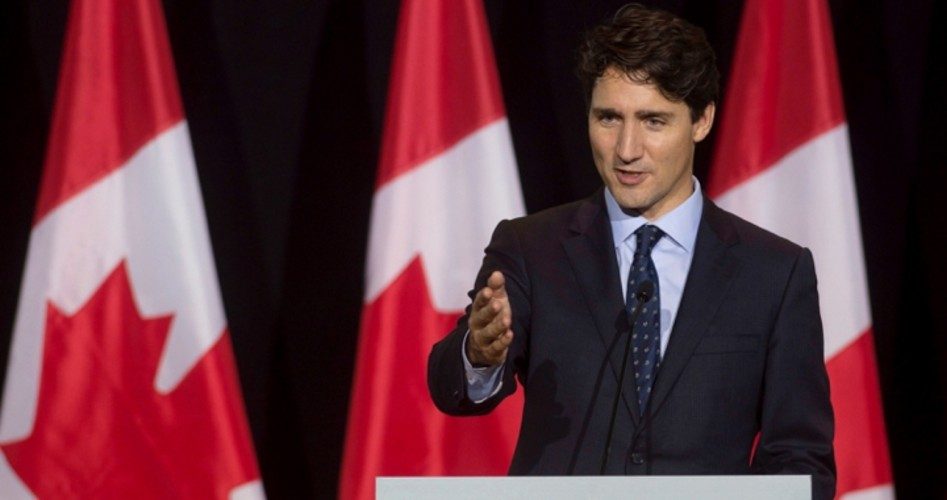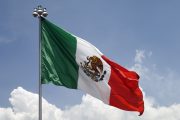
Canada is using the NAFTA renegotiation to push for far-reaching progressive changes to both the agreement and domestic U.S. laws.
“Personally, I don’t think we can make a deal because we have been so badly taken advantage of,” President Trump said at a rally in Phoenix on August 22 regarding the renegotiation of NAFTA. “They [Canada and Mexico] have made such great deals — both of the countries, but particularly Mexico — that I don’t think we can make a deal. So I think we’ll end up probably terminating NAFTA at some point.”
Although Trump was citing in particular Mexico, America’s neighbor to the north, Canada, is now taking advantage of the NAFTA renegotiation process to push for progressive changes not just to the agreement itself, but also to U.S. laws.
Canada’s ruling Liberal Party led by Canadian Prime Minister Justin Trudeau (shown) wants a “feminist North America Free Trade Agreement,” according to CBC News, a division of the Canadian Broadcasting Corporation.
On top of the Canadian government’s core objectives is to make NAFTA “more progressive,” according to the New York Times.
“By that, the [Canadian] government meant not only strengthening the existing labor safeguards and environmental provisions, but also adding whole new chapters on both gender and indigenous rights, and addressing climate change,” the Times elaborated.
Speaking to university students in Ottawa, Canadian Foreign Affairs Minister Chrystia Freeland explained that those “progressive elements are how we guarantee that the modernized NAFTA will not only be an exemplary free-trade deal, it will also be a fair trade deal.”
Freeland stated that the purpose of any trade agreement “is to make trade freer,” adding that the “changes that we make should stimulate innovation and enterprise. They should foster growth. That growth must be sustainable.” And Freeland further elaborated that implementing “strong labor standards, environmental protection, and social justice are important elements for sustainable growth,” Congressional Quarterly reported.
Canada’s interpretation of “fair trade” is a far cry from what President Trump has envisioned for a renegotiated NAFTA.
However, Trump has on numerous occasions stated that if he is unable to renegotiate a “better” deal — one that is advantageous to the American worker and U.S. businesses — he would withdraw from the 1994 “trade” scheme, regarded by the pro-sovereignty and constitutionalist John Birch Society as little more than a forerunner to global government.
And much like how the European Union circumvents both the national and local municipal laws of its member nation-states, Canada is also proposing to circumvent domestic state-level laws within the United States.
On September 3, 2017, Canada’s nationally distributed the Globe and Mail newspaper reported that “Canadian negotiators are demanding the United States roll back so-called ‘right to work’ laws — accused of gutting unions in some U.S. states by starving them of money — as part of the renegotiation of the North American free-trade agreement.”
Right-to-work laws, which give U.S. workers the free choice to decide whether or not join paid-membership labor unions, are a matter of state-level governments in the United States, drafted by state legislators before being passed by the state legislature and ultimately signed or vetoed by the governor. Right-to-work laws have been adopted in 28 states and the U.S. territory of Guam. Canada’s demand to do away with right-to-work laws would circumvent and undo those laws.
Canada’s proposals that both the United States and Mexico commit to more stringent labor and sustainable environmental standards, have garnered the praises and accolades of both unions and environmentalists.
Whereas the Trans-Pacific Partnership (TPP) was met with much resistance from both the grassroots right and the left, Canada’s candy wish list of demands for a “more progressive” NAFTA has neutralized the traditional objections from labor unions and environmentalists. Meaning that the fight to stop NAFTA and pull out of the disastrous agreement will be left up to solely the grassroots right, many of which helped propel Trump and his “Make America Great Again,” anti-globalist “America first” agenda to the White House.
It remains to be seen whether Trump will follow through on the promises he made to his core base of pulling out or if he will succumb to some sort of compromise agreement meeting halfway with Canada’s far-left demands.
Regarding Canada’s push for a “gender equality” chapter, Wendy Cutler, vice-president of the globalist Asia Society Policy Institute in Washington, D.C. and a former U.S. trade negotiator, stated, “I think U.S. support for such a chapter would hinge upon the soft or hard nature of the commitments in any proposal with respect to gender.”
In other words, U.S. acceptance of such a gender chapter would largely depend on how weak or strong the proposed chapter may be. The United States, especially with Trump at the helm, might not agree to a strong gender chapter with “teeth” but may be open to accepting a soft or weaker chapter on gender equality, lacking strong enforcement.
Either way, considering that no such chapter presently exists in the codified 1994 agreement, the inclusion of one (even a soft or weak one) would be a symbolic first step toward a “more progressive” agreement — one in which could eventually be strengthened by future enforcers or renegotiators.
Cutler stated, “If it’s largely aspirational and has soft commitments, with no dispute settlement and no obligation to accede to other agreements, then I think it’s something the [Trump] administration would consider favorably.”
According to CBC News, “several sources both in and outside of [the Canadian] government said it is modeled after the gender chapter the Liberal government added to its free trade deal with Chile.”
The 1997 Canada-Chile Free Trade Agreement (CCFTA) is the second in the world to include women and female youths as a fundamental aspect to long-term economic development and it reaffirmed both their country’s preexisting commitments to United Nations agreements on gender rights. The CCFTA also established a bilateral international commission to oversee that those stipulations for so-called gender rights and equality are adhered to within Canada and Chile.
Despite these onerous layers of international regimentation, Angella MacEwen, a senior economist for the progressive Canadian Labour Congress, describes the gender chapter in its FTA with Chile as “really weak.” In other words, it’s not far reaching enough.
With such arduous demands and progressive expectations from Canada, how can President Trump expect to appease both his base and the Canadian government? Both objectives are at odds, leaving only one viable alternative, which he has ultimately promised and would be the wisest course of action: terminating NAFTA.
Even if Trump and U.S. negotiators were able to convince Canada to drop all its progressive demands and for it along with Mexico to agree with a flawless agreement that benefits both the American worker and U.S.-based enterprises, there is much more that is at stake: the independence and sovereignty of the United States, as well as that of Canada and Mexico.
Just as “more progressive” changes or negative proposals could be added to the agreement in current or future renegotiations, any “positive” pro-U.S. reforms could also be subject to change or removal when enforced or renegotiated by a future administration.
Rather than giving progressives and globalists a foothold or future open door, President Trump and the U.S. government have the perfect opportunity right now to once and for all shut that door close by withdrawing from the agreement, much like how Trump already pulled out of the TPP.
While on the campaign trail, candidate Trump repeatedly called NAFTA a “disaster” and the “worst trade deal ever made.” Therefore, it is difficult to foresee how he can make it any better when Canada’s stated objectives are the opposite of what Trump has promised.
Photo of Canadian Prime Minister Justin Trudeau: AP Images




